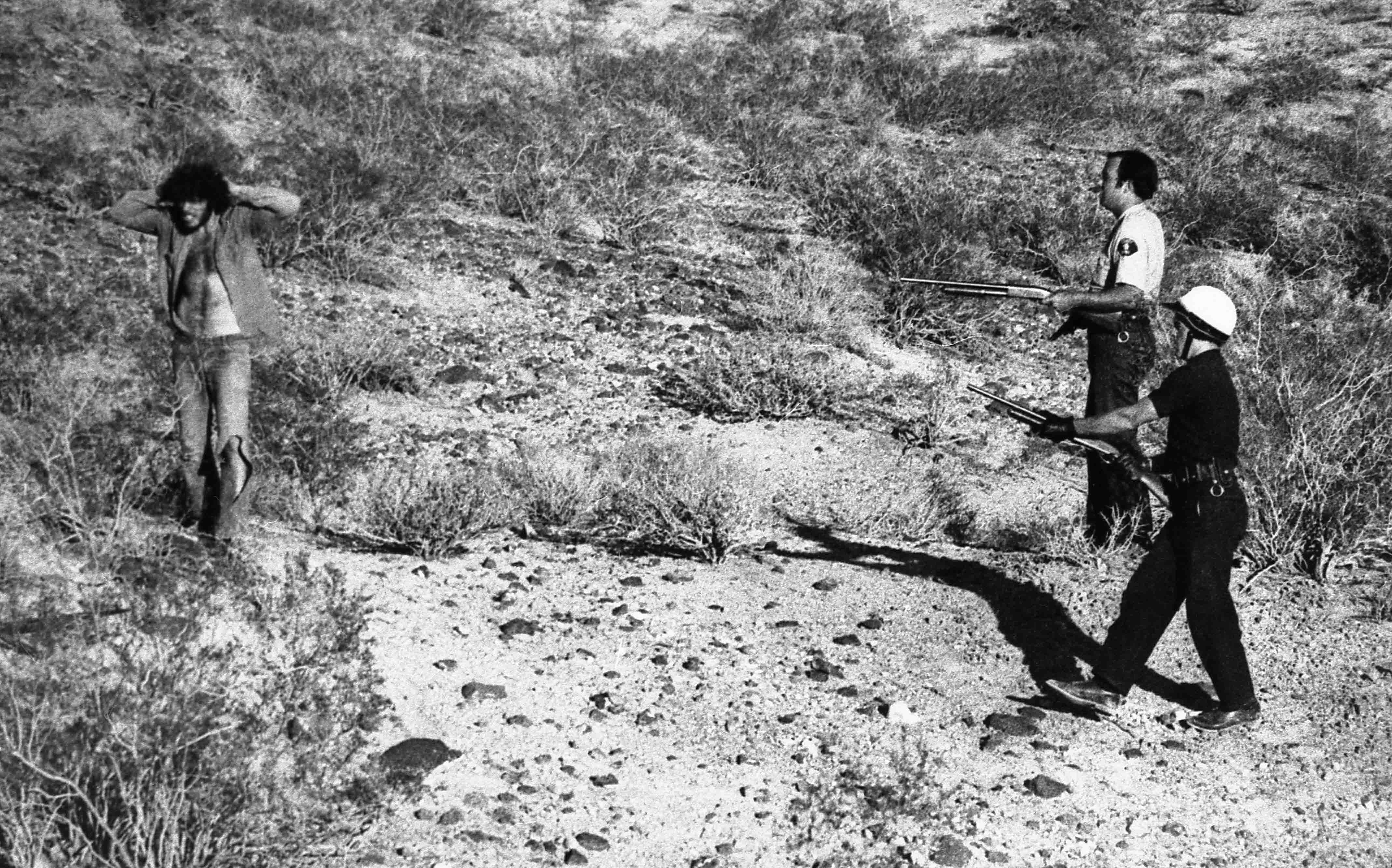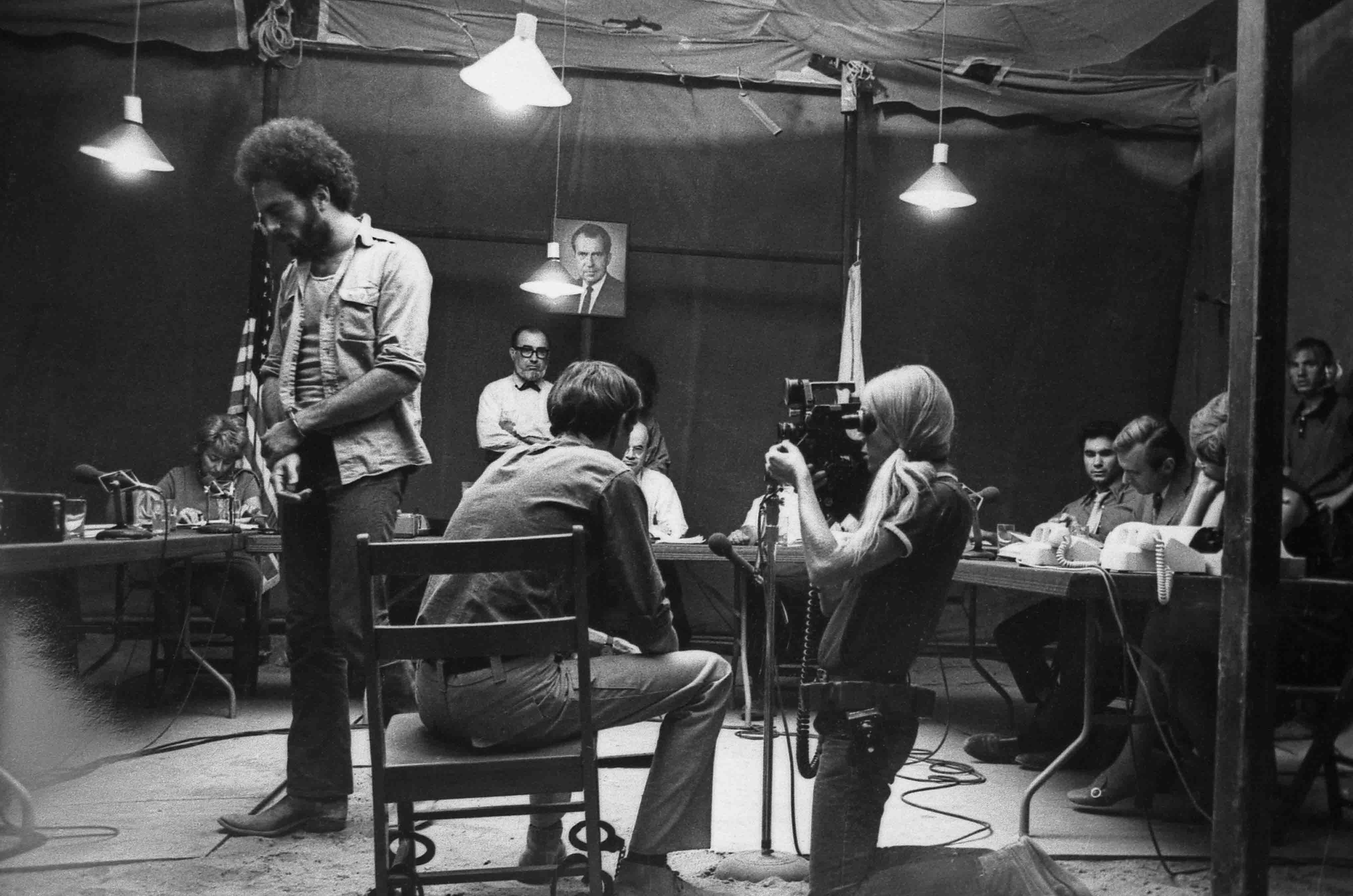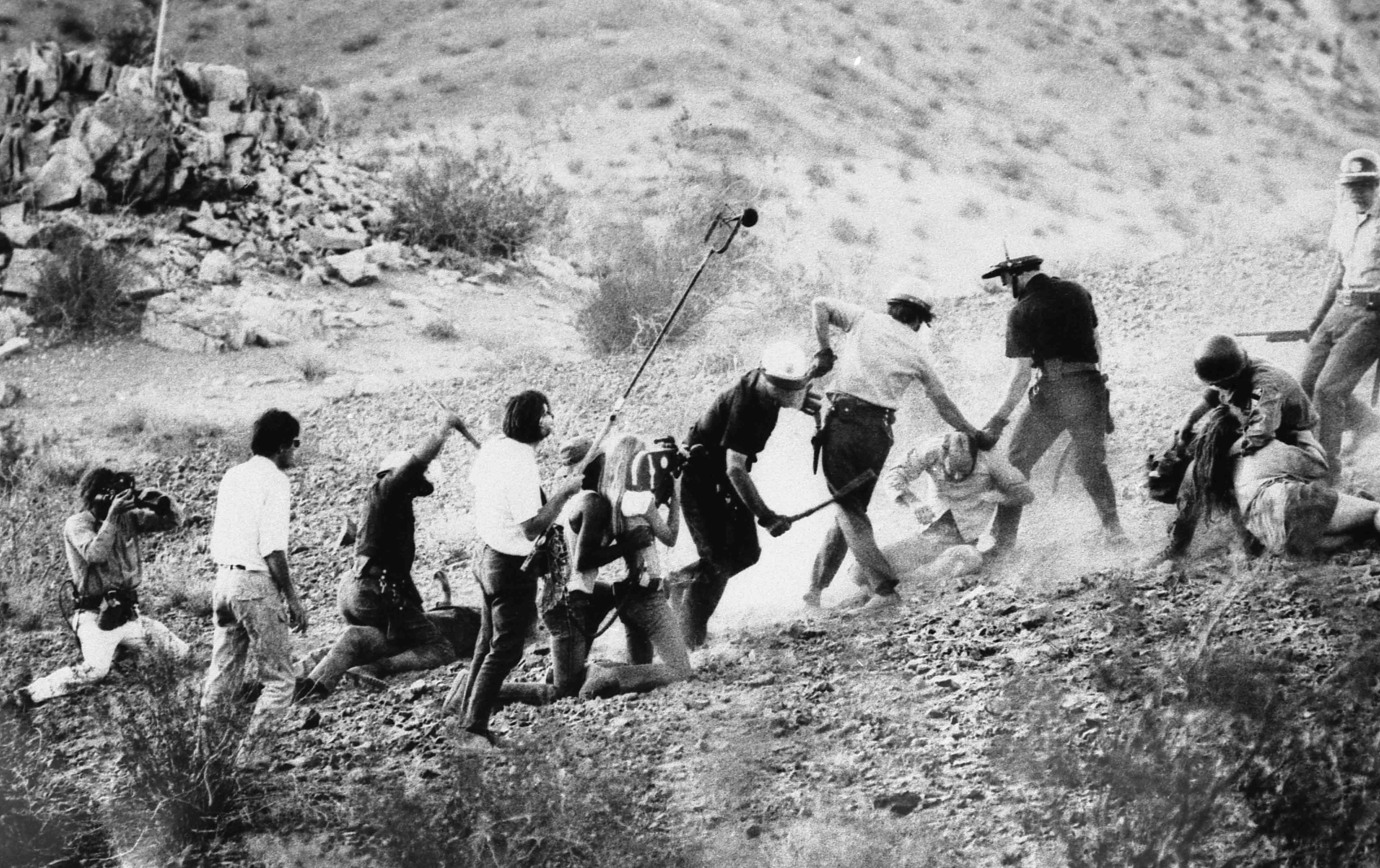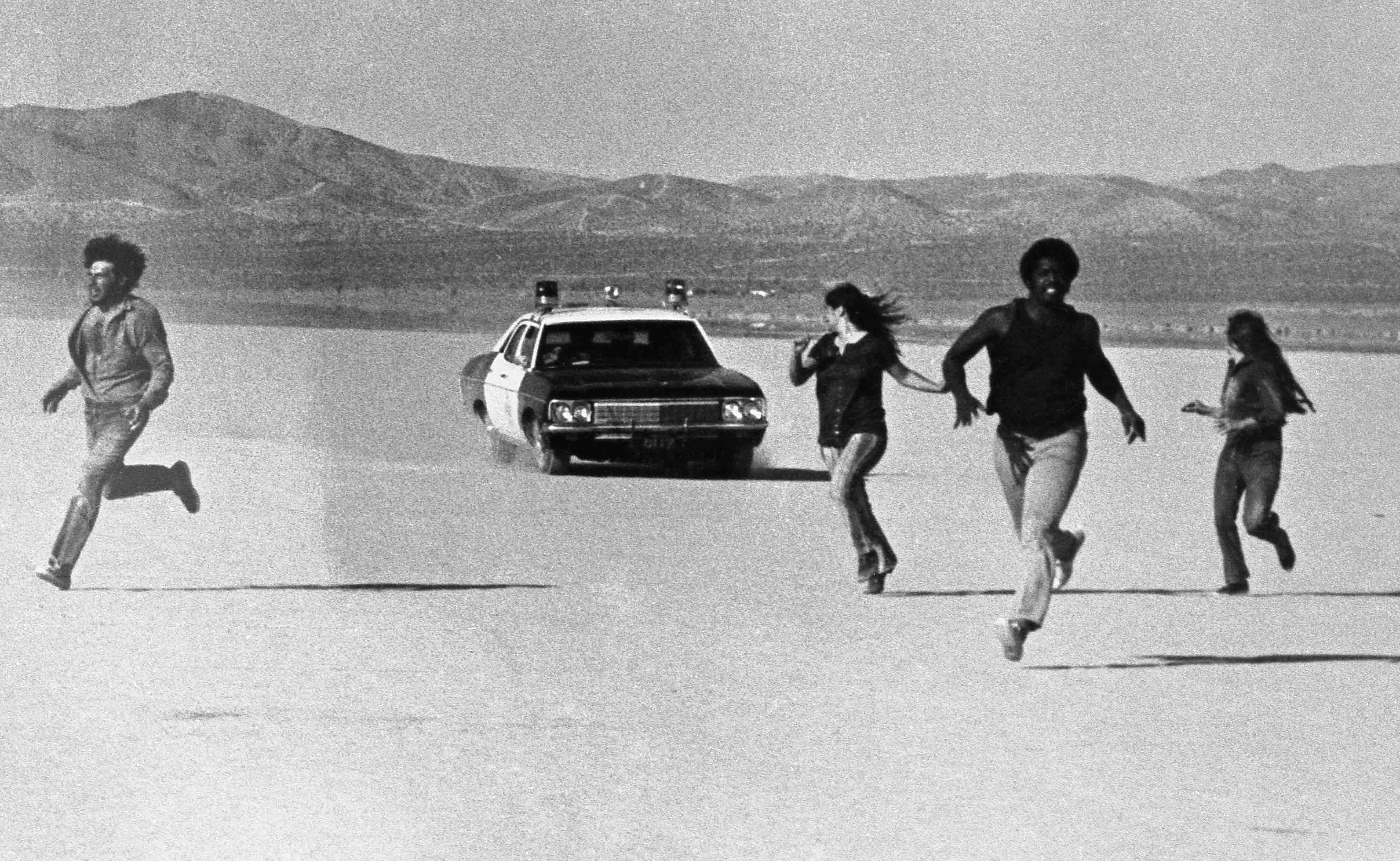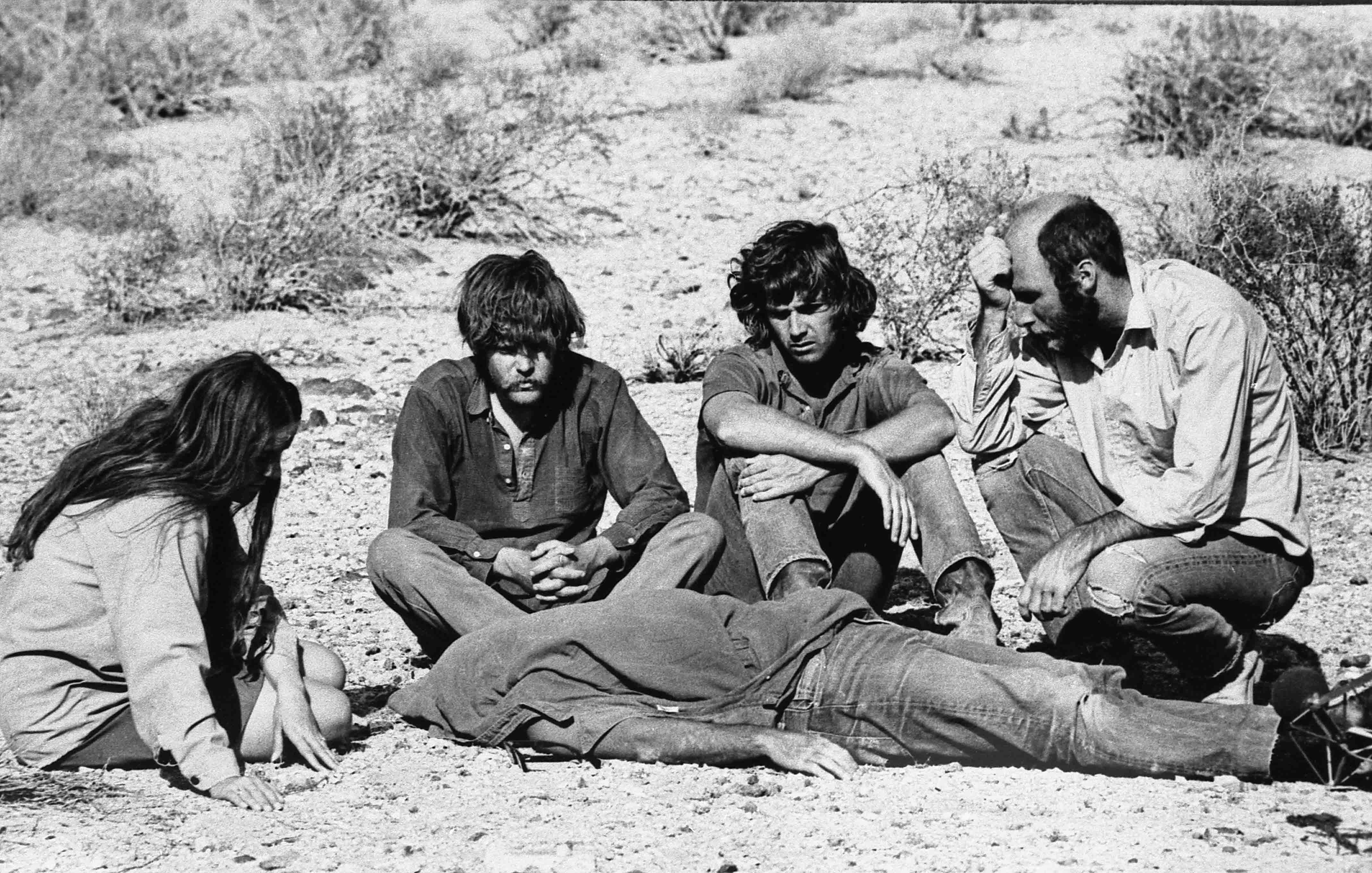Punishment Park
Peter Watkins
- USA
- 1971
- 92min
- color
Synopsis
In a desert zone in southwestern California, not far from the tents where a civilian tribunal are passing sentence on Group 638, Group 637 (mostly university students) find themselves in the Bear Mountain National Punishment Park, and discover the rules of the ‘game’ they are forced to undergo as part of the alternative they have chosen in lieu of confinement in a penitentiary.
Review
In 1970, the US externally lapse into the pit of Vietnam War, and internally goes through the black rights movement and demonstrations opposing the war. Accordingly, the US government declares a state of national emergency and takes the pacifists, deserters, and anarchists to summary conviction. In this trial, most choose the penalty to go to a place in the desert called Punishment Park instead of jail. While not even a drop of water is provided, these people have to find the American flag placed somewhere in the desert for four days, evading the police hunting them down. Except for in film festivals, this film was banned from screening in theaters for several years, with an X rating tag on it. The director, Peter Watkins, applied the code of either documentaries or real time mass media reports to enhance the reality of this virtual reality. The camera carried upon shaking shoulders, the amateur actors looking straight into the camera or having interviews, the police covering up the camera lenses with their hands to interrupt the filming… Watkins, the godfather of fake documentaries satirizing reality through parody, acquires a reinforced sense of realism and reality through these means in his film. This setup throws the spectators into confusion, evoking them to meditate on the fact that this virtual reality may break off from the world of fiction and face them in the form of reality. [Cho Myoung-jin]
Director
-
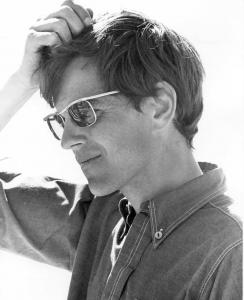
Peter Watkins
La Commune de Paris (1999)The Freethinker (1992-94) The Journey (1983-86) Evening Land (1976) The Trap (1975) Punishment Park takes place tomorrow, yesterday or five years from now. It is also happening today. The war in Indo-China has continued to widen. The administration in America has enlarged its call for the draft. There is a corresponding up-surge of massed demonstrations, bombings of draft centres, and other acts of 'sabotage'. Many of the campuses are at a stand-still. Due to the large numbers of 'political criminals'created by this situation, penal institutions throughout the country become vastly over-crowded. The President therefore uses the powers granted to him under Title II of the 1950 Internal Security Act (the McCarran Act) to declare an 'event of insurrection' within the United States and sets up a series of detention camps throughout the country. Those detained at these camps—mostly young men and women - brought before quasi-judicial tribunals and convicted of various 'conspiracy' charges, of which 'guilt' is already assumed. The defendants are given a choice: either to serve their penal sentence in a Federal prison, or to undergo three days ordeal in the 'Punishment Park' adjoining the detention camp. This ordeal - a three-day pursuit across fifty miles of desert, on foot, without water— is described as "a 'punitive deterrent'... for those elements seeking the violent overthrow of the United States Government." The pursuit force consists of various selected units of police and National Guard, offering what the administration sums up as 'a necessary training...' The defendants are informed that if they complete their ordeal without capture, they will have fulfilled their obligations. If they do not, they must serve their full penal sentence. Punishment Park is an allegory, in the form of a documentary. Structurally, the film is an interweaving of two situations. A British documentary film-unit follows group #657 through their three-day ordeal in the Bear Mountain National Punishment Park near Los Angeles, California. Through a series of interviews with law enforcement officers and 'offenders' and through the actual happenings that are depicted throughout the ordeal, the reality is extended beyond the boundaries of the park to reflect the attitudes and feelings in America generally. The second situation is the documentary coverage of each of seven defendants, five men and two women, confronting the members of the tribunal affiliated with the Bear Mountain Punishment Park. All the defendants have been previously tried and found guilty of conspiring to forcefully overthrow the government. The task before the tribunal members is to assess the degree of guilt and to pass sentence accordingly. The tribunal members include a housewife (and draft-board member), a Senator, a Doctor of Sociology, a manufacturing executive (and draft-board member), a journalist, and a labor union official. Also present is an attorney and a member of the F.B.I.. We hope that Punishment Park will be seen as a film that deals with problems broader even than the present crisis in America. We hope that, in the faces of the American law-officers, the militant defendants and the tribunal, may be seen some of the severe stresses which face contemporary society everywhere, throughout the world, and which are pushing many of us further and further towards fear and intolerance - even violence and repression—as being the only way of 'handling' these problems.
Credit
- ProducerSusan Martin
- Cinematography Joan Churchill
- Editor Peter Watkins, Terry Hodel
- Music Paul Motian
- Sound Michael Moore
Contribution & World Sales
Contribution & World Sales Peter Watkins
E-mail peter_r_watkins@hotmail.com
